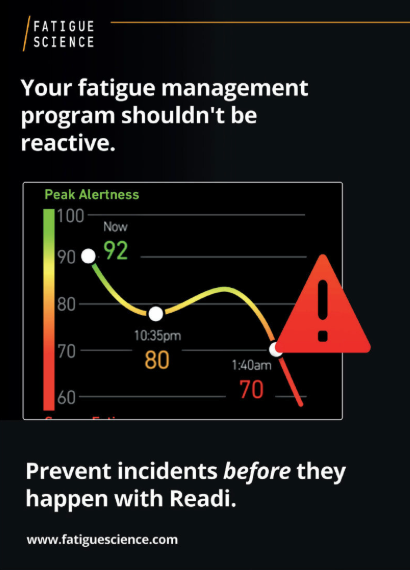The U.S. Navy announced a major effort to use data-driven technology to address the problem of sailor fatigue. Using the Readi platform from Fatigue Science to generate sleep and fatigue analytics, the Navy is now able to relate the readiness of individual sailors to the cumulative risk of the fleet.
Studies suggest that fatigued people struggle to pay attention, can make poor or slow decisions, and may fall asleep on the job — which could be catastrophic during at-sea operations. After two U.S. Navy destroyers were involved in separate fatal collisions in summer 2017, sailor fatigue is identified as a factor in both of the collisions.
Partnering with Fatigue Science, the U.S. Navy took a new approach to measure and improve human performance to bolster operational safety using sleep data to predict sailor fatigue and prioritized a circadian rhythm work schedule — where sailors are allotted at least seven hours for sleep at the same time each day — with meetings scheduled around participants’ sleep and meal times.
The ultimate goal is to develop an Operational Safety Information and Risk Indicator System, or OSRI, that will flag people, crews or task groups operating with too many red flags, drawing leadership attention to the situation before it turns deadly.
For the complete article — Five years later: Inside the Navy’s data-driven quest to avert a future Fitzgerald or McCain collision — check out DefenseNews.com.





